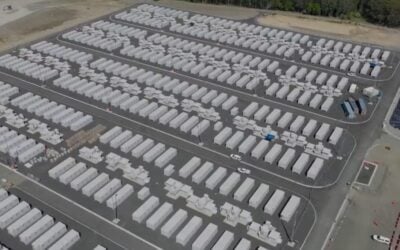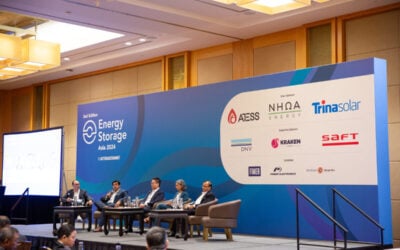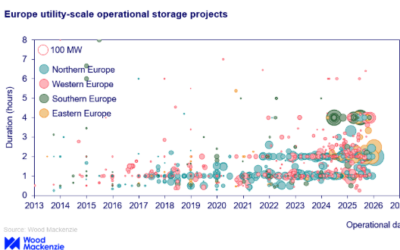The ITRE report advocates a comprehensive definition of energy storage within the legislative text of the European Commission’s New Energy Market Design framework. Flickr: Laura Marie
The European Parliament’s committee for industry, research and energy (ITRE) has approved a new report that proposes amendments around electricity storage in the proposed ‘Winter Package’ legislation, due to be finalised in December.
The ITRE report, approved on Tuesday, makes the case for energy storage within the context of the European energy market, and advocates a comprehensive definition of energy storage within the legislative text of the European Commission’s New Energy Market Design framework, also known as the ‘Winter Package’.
“The growing share of variable renewable energy sources in the electricity mix requires stable backup from flexible and sustainable energy sources, and flexible technologies such as storage and demand-response,” the ITRE said in the report.
“Energy storage is a key tool for bringing greater flexibility and efficiency to energy markets, but… there is still no regulatory mechanism in place making it possible to take advantage of an efficient storage system.”
Try Premium for just $1
- Full premium access for the first month at only $1
- Converts to an annual rate after 30 days unless cancelled
- Cancel anytime during the trial period
Premium Benefits
- Expert industry analysis and interviews
- Digital access to PV Tech Power journal
- Exclusive event discounts
Or get the full Premium subscription right away
Or continue reading this article for free
The report recommends a separate asset category for storage systems, and for storage devices to be defined in the regulatory framework. It argues for a technology-neutral design of the energy market, allowing for storage solutions such as lithium-ion batteries, heat pumps and hydrogen fuel cells, and for clearly defined mechanisms to take advantage of excess production and “curtailment”.
It also addresses a number of regulatory and technical barriers, including discriminatory practices in network codes, where it proposes fees and taxes are applied fairly to avoid double costs for the charging and discharging of energy. “If and when storage options become more abundant and affordable, the rationale for capacity markets will quickly disappear,” the ITRE said in the report.
Member States should give consideration to the regulatory framework, encouraging end-users to turn to self-production and local energy storage.
“Developing new and existing electricity storage solutions will be an indispensable element of the energy transition. The new market design rules should help to put in place a supportive framework for the various technologies involved,” it said.
The European Association for Storage of Energy (EASE) said the ITRE report, which comes as the European Commission consults on its New Energy Market Design legislation, should be considered as a “first indication on what stance the European Parliament will take when amending the Winter Package”.
Yesterday, delegates at the APPG for Energy storage meeting in London asked whether the UK, once it leaves the EU, will be able to keep up with the Europe’s storage progress in light of the new ITRE report. Panellists said the Brexit referendum actually presented a business opportunity for energy storage.





